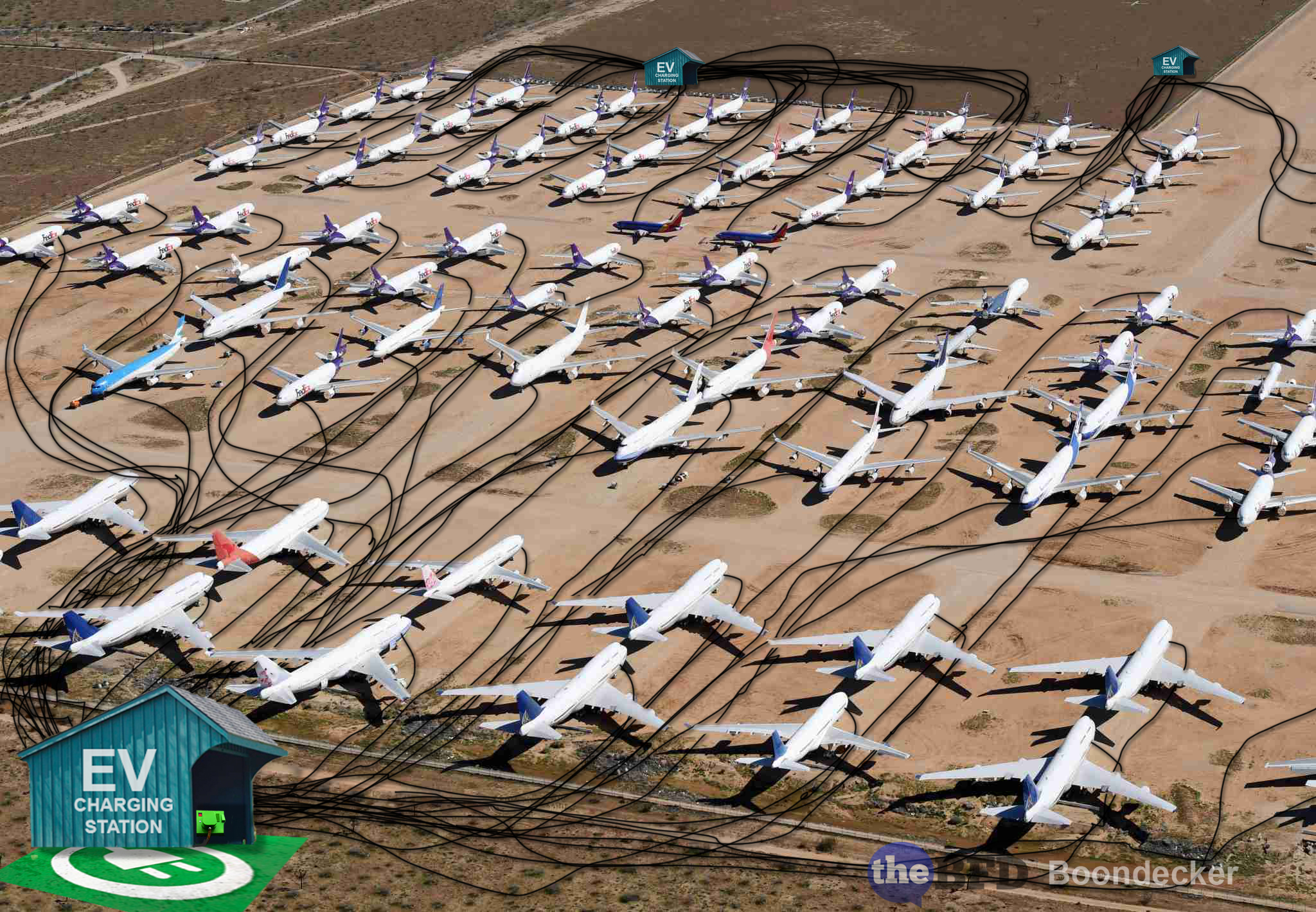Table of Contents
A paywalled article in the Financial Times reports the musings of Cambridge Professor of Engineering and the Environment, Julian Allwood. His conclusion is that the only way for aviation to hit net zero by 2050 is to stop flying. Yeah right!
Dreaming of electric planes and planting trees will not save our planet
The UK aviation industry this week promised to bring its net carbon emissions down to zero by 2050 while growing by 70 per cent, and Prime Minister Boris Johnson boldly predicted that “viable electric planes” would be available in just a few years.
In response to an earlier post on The BFD, reader Brian Dingwall posted some interesting facts: “An Airbus A320 Neo carries 266MWh of fuel energy. A battery pack carrying the same energy would weight 1640 tons, 19 times the maximum, take-off weight. [Plugged into] a 1MW source it would take 11 days to charge.” We are going to need a lot more space at the airports to park all the planes while charging.
“A ha”, I hear you say, “what about Moore’s Law and everything getting smaller, faster, lighter like computers and smartphones?” Brian’s factoids go on to point out: “Not applicable. Electrons in a microprocessor do not take up space but ions in a battery do. Only major new battery chemistry will bring major changes.”
So we have a wee way to go before we take our first battery-powered long-haul vacation.
But past experience with innovation in aviation suggests that such ambitious targets are unrealistic and distracting. The only way the UK can get to net zero emission aviation by 2050 is by having a substantial period of no aviation at all. Let’s stop placing impossible hopes on breakthrough technologies, and try to hit emissions targets with today’s technologies. Our recent report “Absolute Zero” draws on work at six British universities to explain how. […]
So the commitment to net zero aviation by 2050 is really a commitment to zero aviation. Rather than hope new technology will magically rescue us, we should stop planning to increase fossil-fuel flights and commit to halving them within 10 years with an eye toward phasing them out entirely by 2050.
Taxing aircraft fuel at the level of the UK’s current road fuel tax would be a useful first step: I estimate that it would make flights up to four times more expensive.
Climate policy announcements so far have failed to account for the limited rate at which new technologies can reach significant scale. Fifty years after the Danes began developing wind turbines, they contribute just 2 per cent of world primary energy. Regardless of prices or incentives, new energy generation, transport and industrial processes require public consultation on regulations, land use, funding, environmental impacts and more. This all slows down their adoption.
Financial Times
So the first step is to hike fuel costs and thus ticket prices by a factor of 4 and if that doesn’t work then ground all the planes – simple. Although I do wonder how the CoP delegates are going to get to their annual wasteful talkfests conferences. Perhaps St Greta can organise a fleet of yachts?
Shaw’s Zero Carbon plan must include the zero carbon plane, shawley?










